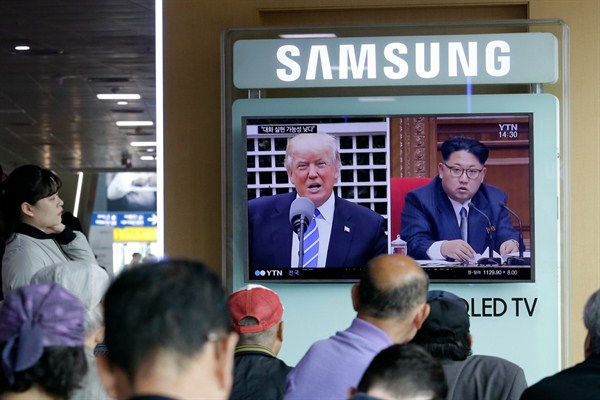U.S. President Donald Trump’s latest comments on North Korean leader Kim Jong Un suggest a new tactic: Rather than asserting primacy and disparaging other countries’ policies, Trump has tried to convey empathy for Kim’s predicament. Perhaps Trump is following Chinese President Xi Jinping’s advice on how to keep Kim from stepping over the brink into conflict. But it could say more about Trump’s evolving understanding of the burdens of leadership.
In recent days, as tensions with North Korea have risen, Trump has used some unexpected language to describe Kim. He’s called the 33-year-old Kim “a pretty smart cookie,” conveying some admiration for the young tyrant’s ability to consolidate his power amid challenging circumstances after succeeding his late father in 2011. The president has now said he’d be “honored” to meet the North Korean leader, causing some heartburn in diplomatic circles. To be sure, Trump understands that the stakes are high, given North Korea’s latest aggressive and risky behavior, including threats to use its ballistic missiles against American interests and facilities. But he’s taking a different approach than he has toward other leaders.
Early in his presidency, Trump used his meetings with foreign leaders of mostly important allies—Germany’s Angela Merkel, the U.K.’s Theresa May, Israel’s Benjamin Netanyahu and Canada’s Justin Trudeau—to play alpha dog. From the prolonged hand grabs to the language he used to put these friendly partners in their place, Trump wanted to make clear that there was a hierarchy of power. He was showing, a bit reluctantly, the needed respect for key bilateral relationships, but with his special style of self-reference and self-importance still on display.

